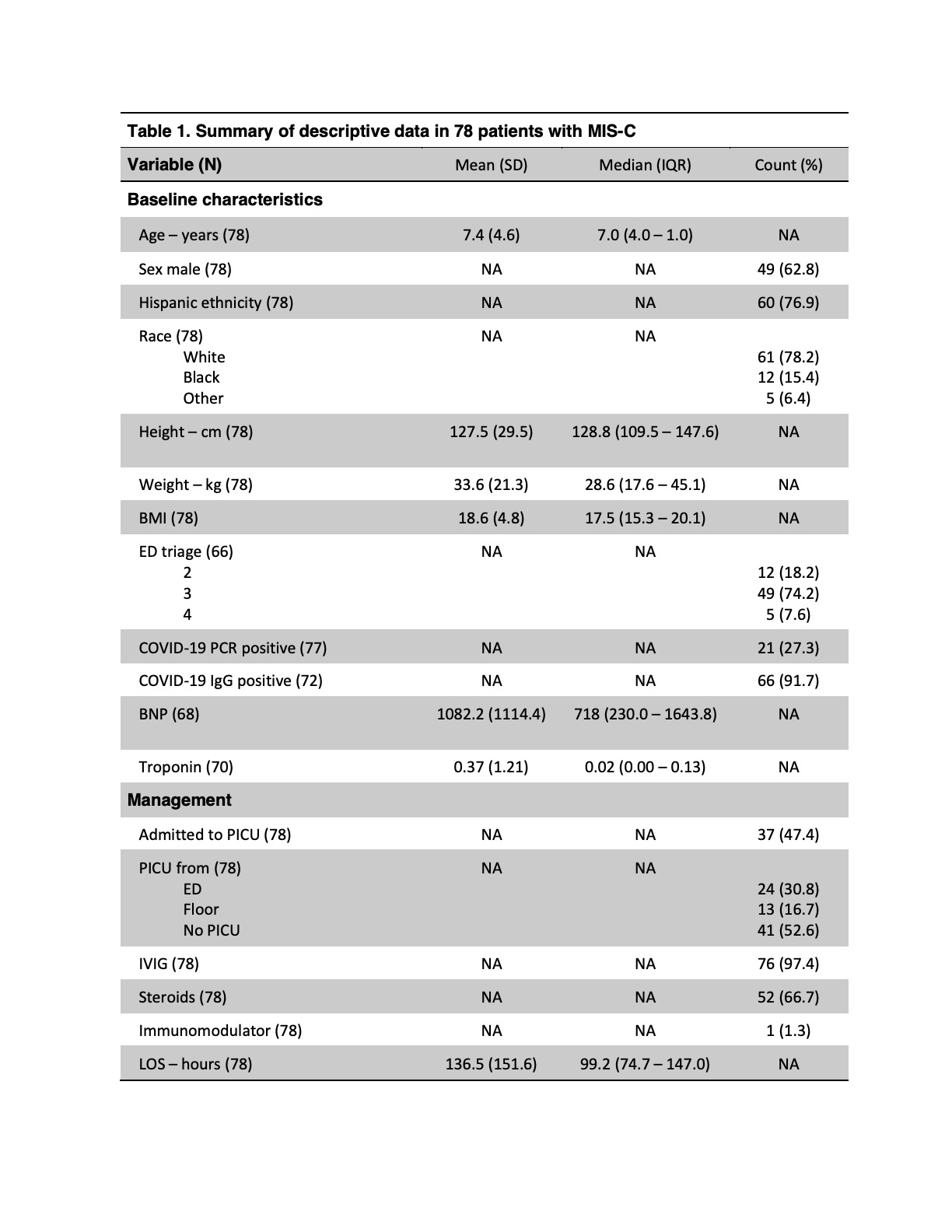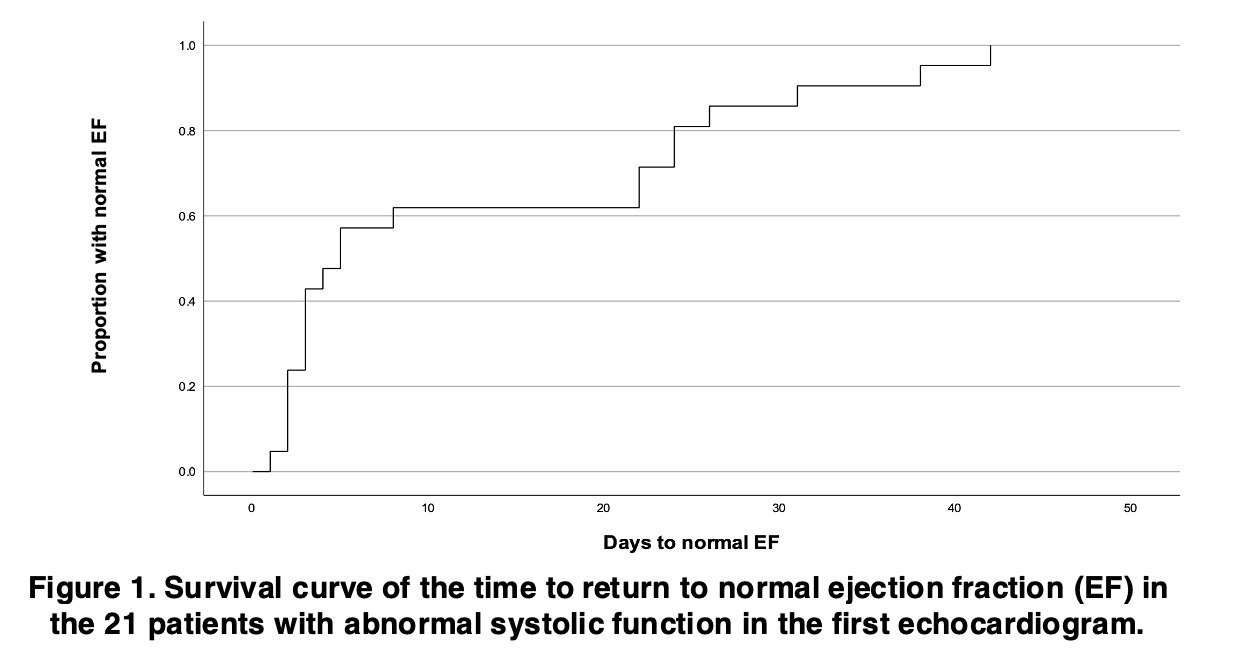Emergency Medicine: All Areas
Emergency Medicine 7
373 - Cardiac Outcomes in Multisystem Inflammatory Syndrome in Children (MIS-C) with Acute Elevations in BNP and/or Troponin
Publication Number: 373.211

Ifrah Waheed, MD
Pediatric Resident - PGY2
Nicklaus Children's Hospital
Miami, Florida, United States
Presenting Author(s)
Background:
Multisystem inflammatory syndrome in children (MIS-C) encompasses fever, lab-evident inflammation, and multi-organ involvement in children with active or recent COVID-19 infection. Many patients with MIS-C have cardiac involvement, commonly resulting as decreased left ventricular (LV) ejection fraction (EF) and/or coronary artery dilation. Elevated levels of troponin and brain natriuretic peptide (BNP) are common in this population, but the mechanism of injury has yet to be fully described. In addition, lasting effects of the elevated cardiac biomarkers during acute MIS-C have yet to be fully explored.
Objective: The objective of this study is to determine if there is any association between troponin or BNP levels and LV function in patients presenting with MIS-C, and to describe the time frame for the abnormal EFs to return to baseline.
Design/Methods:
We performed a retrospective review of a cohort of 78 patients with MIS-C treated at a large tertiary care facility between March 1st, 2020, and March 31st, 2022. The main outcome of the study was abnormal LV systolic function, defined as having an EF ≤0.55 in an echocardiogram. Peak levels of troponin and/or BNP during inpatient admission were obtained and compared against the LVEF on all initial and follow-up echoes. Survival analysis (Kaplan-Meier) was used to determine the time to return to a normal LV systolic function in patients with abnormal findings in the first echo.
Results: Table 1 summarizes the characteristics of the patients included in the study. Twenty-one of them (26.9%) had abnormal LV systolic function in the first echo. Only two variables (ED triage level and BNP level) were statistically associated with low EF. The mean values of troponin were not significantly different between patients with and without abnormal LV systolic among function (Table 2). Low EF persisted in six (8.5%) and in just one (1.3%) patients in the second and third assessments, respectively. No echoes in the fourth or fifth evaluations showed LV systolic abnormalities. Figure 1 shows the survival curve to recover normal LV systolic function. The mean and median time to return to a normal LV systolic function in these 21 patients were 13.0 and 5.0 days, respectively.
Conclusion(s): In patients presenting with MIS-C, BNP levels were acutely more indicative of LV dysfunction on echo as compared to troponin levels. However, initial abnormalities in BNP and troponin levels in patients admitted for MIS-C are not associated with irreversible cardiac dysfunction. Despite significant elevations above baseline levels, none went on to have abnormal echoes after 40 days.

.jpg)

